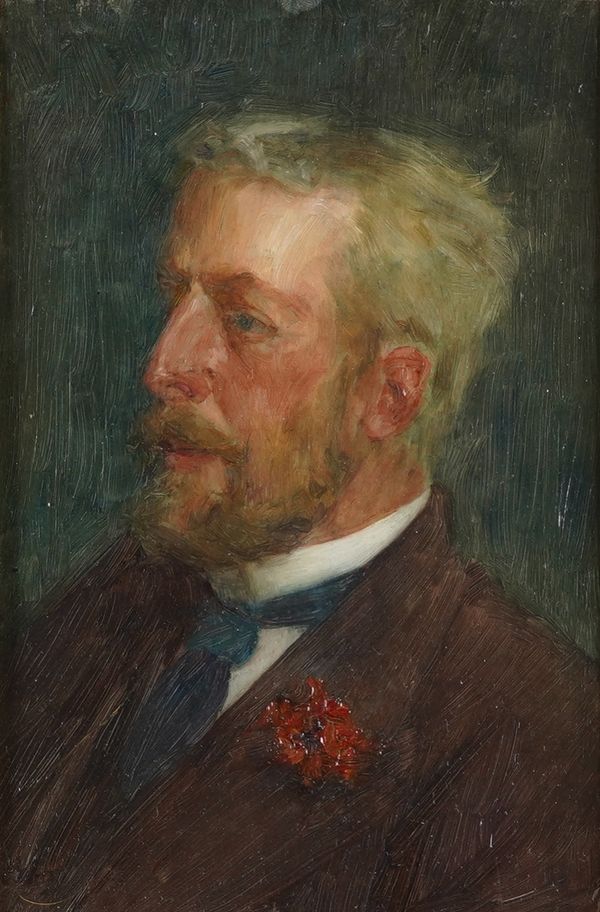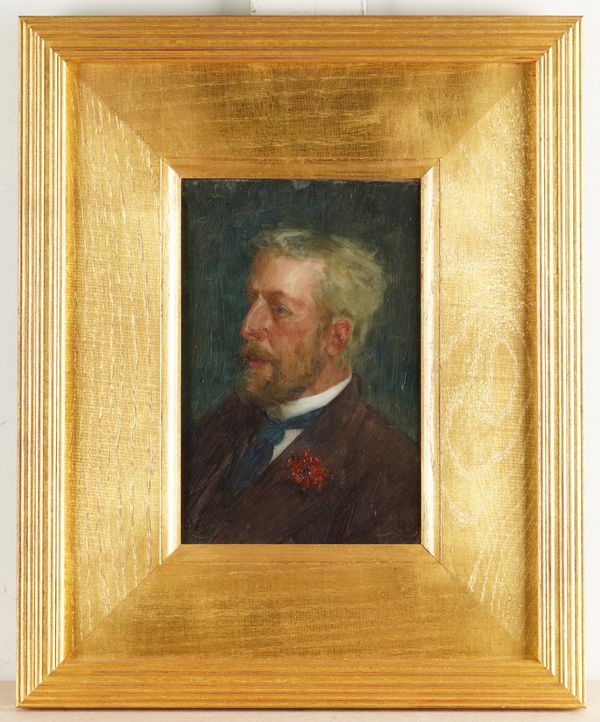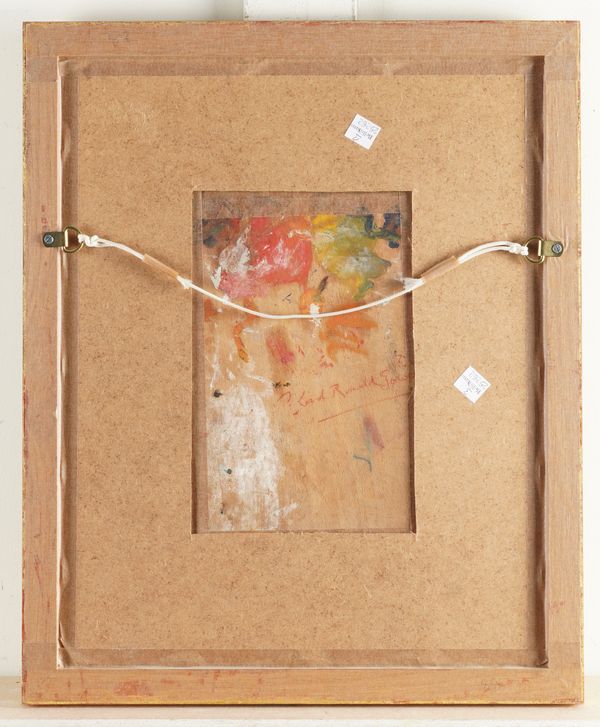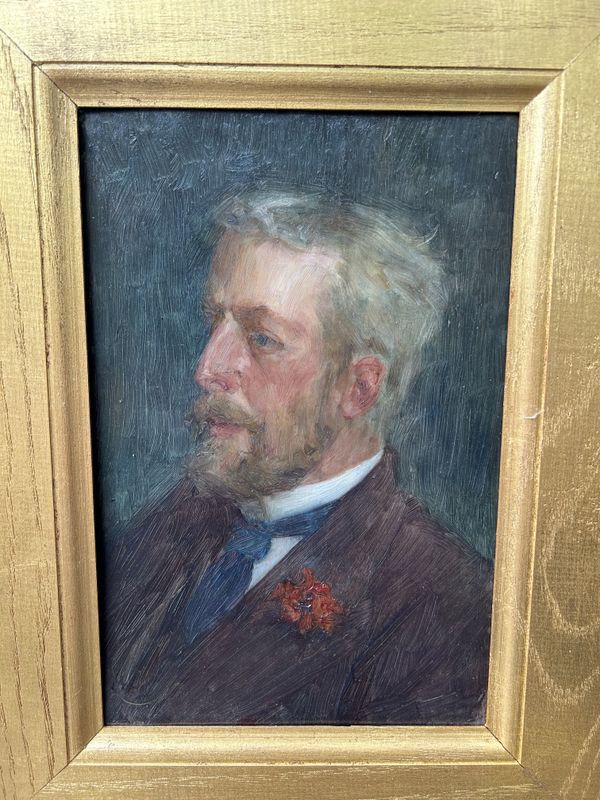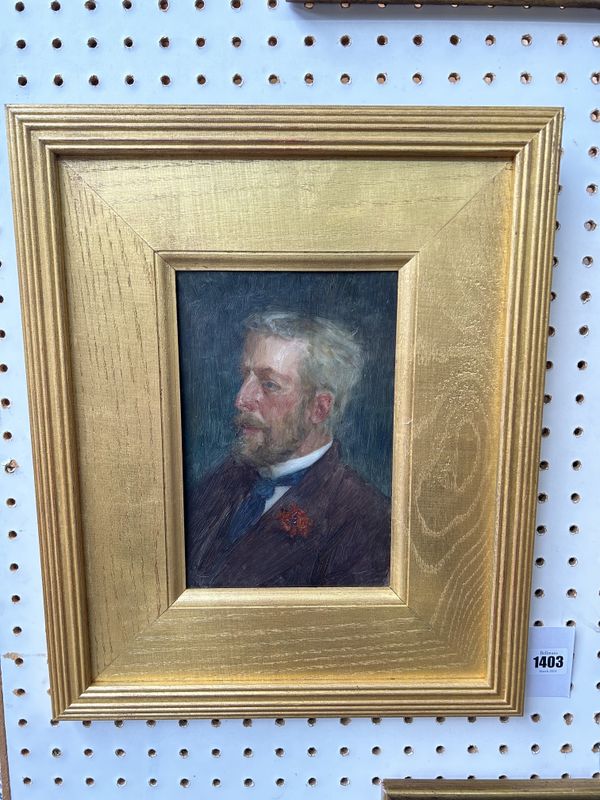HENRY SCOTT TUKE (BRITISH, 1858-1929)
Portrait of Lord Ronald Charles Sutherland-Leveson-Gower (1845-1916)
inscribed 'Lord Ronald Gower' (verso)
oil on board
23 x 15cm
Provenance
The Great niece of Henry Scott Tuke;
Sale, Bonhams Oxford, 16th November 2011, lot 98 (catalogued as 'Portrait of a Gentleman'), where acquired by the present owner
| Estimate: | £1,500 - £2,500 |
| Hammer price: | £4,000 |
Footnote
Ronald Gower, who was the seventh son of George, 2nd Duke of Sutherland (1786-1861), sat for Tuke in 1897, a work now held in the National Portrait Gallery (NPG 4841). He had an eclectic career, serving as liberal MP for Sutherland between 1867-1874, but allegedly only made one speech in parliament during that period. He was also a sculptor with his most famous works being the Shakespeare memorial at Stratford-upon-Avon which includes a bronze of The Bard on a pedestal surrounded by bronzes of Hamlet, Lady Macbeth, Prince Hal and Falstaff, representing philosophy, tragedy, history and comedy. Gower was a trustee of the National Portrait Gallery as well as being an author who published biographies of Joan of Arc and Marie Antoinette along with a history of the Tower of London.
His most enduring personal relationship was with author Frank Hird (1873-1947), twenty-eight years his junior, who he actually went on to adopt. Gower commissioned Tuke to paint a pastel portrait of Hird (whereabouts unknown) and both are mentioned in Tuke's Diary entry for 11th June 1902: A pleasant drive to Chidingstone with Lord Ronald Sutherland-Gower and Frank Hird. Left at 4 and found Kairns Jackson and Eiloart at the Chess Club. They associated frequently with Oscar Wilde who made a typically witty observation regarding his relationship - 'Frank may be seen but not Hird.' Wilde's 1889 novel The Portrait of Mr W.H is generally considered to be a comment on Gower's immediate circle and, furthermore, he is considered an inspiration for the character of Lord Henry Wotton in The Picture of Dorian Gray.
Gower was implicated in the Cleveland Street Scandal of 1889; Police discovered a male brothel but the government attempted to cover the matter up due to the social prominence of many of the clientele. Gower died in relative poverty having been defrauded of his fortune by Francis Shackleton, brother of the Antarctic explorer. Having been entrusted with Gower's finances, Shackleton sold his portfolio in exchange for worthless stocks that only benefitted himself, forcing Gower to sell Hammerfield, his country house near Penshurst in Kent
Much of what is known about Gower's life comes from his diaries which are often remarkably candid regarding his attraction to men. Even though homosexuality was illegal at the time Gower would have assumed his high society rank would protect him from prosecution.
Condition report
Board slightly bowed upper left, although this isn't particularly noticeable now board has been re centred (previously it had slipped a little).
A small semi circular pale mark visible upper centre edge, this may be original to work. This mark was only visible because the board had slipped a little in the frame, it isn't noticeable now board has been re-centred.
Appears in very good, ready to hang condition.
